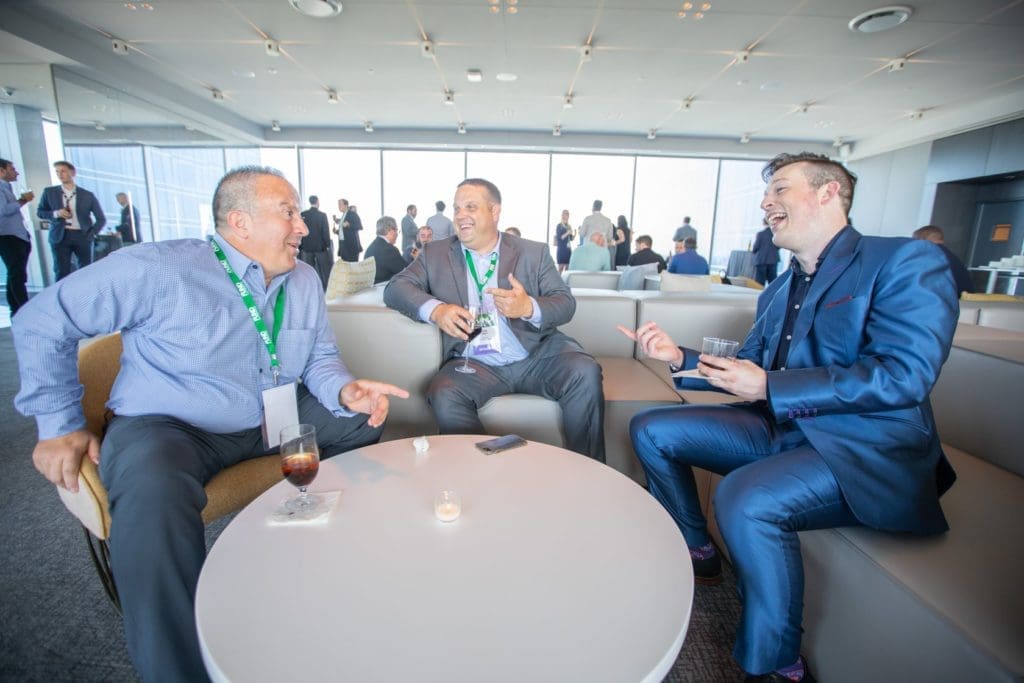This was a question from an ELITE.University member.
Turns out it's kind of popular.
I got a couple thoughtful responses on YouTube (which is a miracle).
So if you're wondering about this, yourself, watch the video.
Every year businesses focus on scaling. That means less time spent on soft skills and more time spent on automation. This creates an environment that forgets the essential ingredient of long term success: people.
Every part of your business involves a person at some point. Arguably, this makes the human dimension of your company the most important deciding factor of success or failure.
No matter how big or small your business, it lives or dies on trust.
Now that the old world of "word of mouth and handshakes" has been thrown into the digital marketplace, it's even more difficult to create genuine connections with your customers.
How can you help build trust in a digital context?
Soft skills is a broad heading that includes a lot of different techniques, mindset shifts, interpersonal skills, time management, and more. Broadly speaking it's anything that helps you connect with other people.
Hiring for personality first, and technical ability later (because you can teach skills but you can't teach disposition) is an integral skill for any hiring manager.
As a leader you need to be able to get your company on board with your vision in you want an effective team. Getting buy-in from your company is a soft skill.
If you are looking for investors you know that you don't need to just find money; you need to find the right money. This is a function of finding someone who believes in the value of what you're doing, and trusts your ability to deliver on your word. This is the world of soft skills.
If you are a salesperson looking to land more business, you need to be able to connect with a lead and help them feel like you understand their situation. Only then will the trust your advice on what will solve their problems. How quickly you can do that is part of your soft skills toolbox.
Even if you are an e-commerce / dropshipper! Soft skills are essential. You need to be able to communicate through your website's copy and visuals to your customer. They will either trust the site with their credit card information, or they'll just "not feel right about it" and bounce. Understanding their experience is a soft skill.
Maybe you are in the research and development team at a Fortune 500 company. You've just made a huge discovery that will make the company millions of dollars. You try to tell management, but they're "just not getting it." That is a failure of your ability to communicate the value of your discovery. And you guessed it, a failure of soft skills.

People do business with the people they trust. They're more likely to trust you if you like you. They will like you if they can understand what you're trying to say to them. So, soft skills are the areas you need to practice in order to connect with people in less time with less effort.
Basically it's everything that's not technical skills.
It's not what you say; it's what your audience hears. This is difficult enough in person even when you can see body language, hear tone of voice, eye contact, etc.
Online it's even more difficult when you're staring into an unblinking lens with zero feedback about how well your message is coming across.
On the sales page communication is the most difficult since you're relying entirely on the written word (and the reading comprehension of your customer).
One of the goals of communication is to help your audience feel a connection with you and your message. It loosely translates to "likeability" or "trust." It's agreement, mutual understanding, and empathy all rolled into one that makes communication easier.
One of my mentors told me there are three elements to motivation:
From a leadership perspective, the trick is to build a relationship where the employee feels comfortable explaining why they keep coming to work.
Once you know why they're showing up to work every day, you can help them understand how doing their best at work is the best strategy to achieving those goals. Now their natural motivation is aligned to the mission of the business. None of this would happen without trust, communication, and rapport.
Every successful business has processes built in for every step of the acquisition and delivery part of the company. Sometimes, however, teams can get too focused on the "how" (process) and forget the "why" (to help our customers).
When your team says things like "but we always do it this way" you're running the risk of ignoring situations where that process doesn't help a customer. You might even be outsourcing a lot of the pain of solving problems onto the customer just because your process demands it.
This is very bad business.
If, instead, you have a team that understands the goal, you can remain open to new ways of delivering results. This is the heart of flexibility.
Most people are resistant to change, so rewarding innovation and new ideas is a profoundly effective soft skill.
This is entwined with flexibility. Finding new ways of thinking about problems, opportunities, resources, and connections is all based on creativity, innovation, and non-linear approaches to resource management.
That's just a fancy way of saying soft skills.
Hopefully I've already made the case clear. Every single part of your business is affected by how well (or poorly) your people can connect with each other and your customers.
If you have spent a majority of your time focusing on the technical side of your company (scale! automate! outsource!) then you have a lot of opportunity to improve things by addressing the human side of things (connect! communicate! commit!).
If that's you, send me an email about how we can get you one of my training workshops. They are available online as well as in person (when they're safe to do).

This is the story of an experience I had in Lexington Kentucky when a couple remembered meeting me for 5 minutes in Orlando, FL nearly a year afterward!
Why did they remember me after such a long time? The secret lies in my area of expertise!
On any plane, at any networking event, or any cocktail party I’m usually the most interesting person in the room.
I used to think it was because I travel the world, have great tour stories, worked on multiple TV projects, or have famous friends.
Nope.
Couldn’t be more wrong.
Here’s how it happens. Someone asks me what I do for a living, so I say, “I’m a mind reader.”
There’s a pause, and then 99% of the time the person says, “What am I thinking?!”
And that’s the secret. It was staring me in the face for years before I understood it.
They don’t care about my travels, they don’t care about my TV appearances, they don’t care about me. They care about what I can tell them. . . about THEM.
There it is. There’s the secret to being the most interesting person in any room.
I’ve spent 2 decades becoming an expert on their favorite subject: them.
Their first reaction isn’t to ask about how genuine mind reading would have on the field of physics. Or how cognitive scientists are just now digging into why this stuff works. Or how mentalism is part of a millennia-old tradition starting before the Oracles of Delphi.
No, it’s to demand I tell them about themselves.
They want to be seen. They want to be told they’re special.
We all do.
When we find someone who actually listens to what we say. Who isn't constantly distracted by their phone. Who cares, we feel it.
That can be your superpower.
By completely focusing on learning as much about the person right in front of you, you instantly become one of the most important people in that person's life.
That's how I make indelible impressions on people who remember me for years after. It isn't the trick. It isn't the fact I can tell them what card they're thinking about.
It's that I show them they're important enough to warrant my full attention.
So, for yourself, figure out how you can use your experience to dive into someone else's experience, and you'll finally have the secret to being the most interesting person in the room.
Be their mirror and they'll love everything they see.